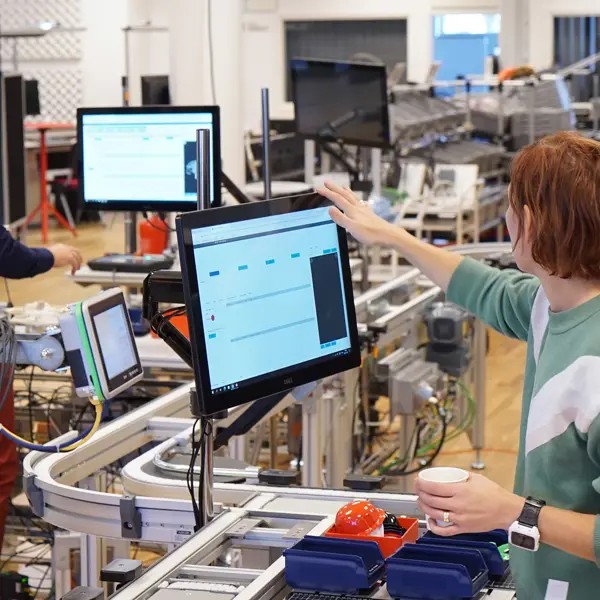


How can we create smarter maintenance solutions for the trains of the future? That question was at the heart of an international workshop hosted by Chalmers at the end of June, where researchers, public authorities and industry partners gathered to discuss data flows, AI and shared solutions.

Chalmers, together with the University of Seville, organised the event to connect experts in railway maintenance. The workshop brought together representatives from Swedish State Railways (SJ AB), the Swedish Transport Administration (Trafikverket), SKF, Talgo, IFS, University of Granada and the European organisation ESReDA. The aim was to exchange knowledge and strengthen collaboration around data-driven and intelligent maintenance for future railway systems.
A student link sparked the collaboration
For Chalmers, this initiative was both a step towards expanding European research partnerships and an opportunity to link internal expertise, for example within the Production Area of Advance and Charmec (Chalmers Railway Mechanics).
“It was a research group at the University of Seville that took the initiative, having followed our work for some time. They even sent a master’s student to our Production Engineering programme, which became a natural bridge between our research environments,” explains Anders Skoogh, Professor and Profile Leader for Digitalised Production Systems, one of four areas within the Production Area of Advance.
A change from cost to strategy
Professor Adolfo Crespo Márquez from Seville is a well-established researcher in maintenance and asset management, and his team has identified several synergies with Chalmers' strengths. Although railway maintenance has not traditionally been a focus within the Production Area of Advance, Skoogh sees great potential.
“Maintenance has evolved from a support function to a strategic area within both industry and the transport sector. It requires cross-sector collaboration, and that is exactly what we can achieve through the Production Area of Advance,” says Skoogh.
New alliances powered by data and AI
One priority within Chalmers’ Production Area of Advance is developing solutions in digitalisation and AI for the manufacturing industry. Through the workshop, researchers and stakeholders from different sectors had the chance to pinpoint shared challenges and explore new opportunities together.
“Our ability to connect diverse competences and form new alliances is one of our key strengths,” says Skoogh. “This collaboration shows the value we can bring, even in new fields such as railway maintenance, by integrating data and information from train manufacturing, vehicle in use, and the railway infrastructure.”
Full value chain for real impact
“A key takeaway from the meeting was how uniquely we managed to bring together the entire value chain — from component makers and train builders to researchers and owners of trains and infrastructure. This comprehensive approach was highly appreciated by the participants, and we now look forward to continuing and expanding this collaboration,” concludes Professor Skoogh.
- Full Professor, Production Systems, Industrial and Materials Science



